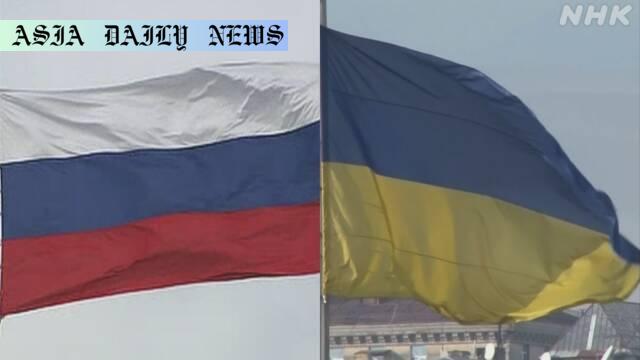Sumy: Russian military reportedly dropped a guided bomb on northeastern Ukraine, damaging homes even amid a declared ceasefire.
Key Point 1: Russian forces targeted Ukraine’s Sumy region with a guided bomb on the first day of a declared ceasefire.
Key Point 2: The bombing destroyed a residential building, damaged 10 houses, and left a woman buried under the rubble.
Key Point 3: Moscow’s ceasefire coincided with the WWII anniversary but was undermined by this attack.

Context: Russian Airstrikes in Sumy Amid Ceasefire
On Thursday, the first day of a three-day ceasefire declared by Moscow, reports emerged of a devastating act of violence in the northeastern Ukrainian region of Sumy. According to the Ukrainian Air Force, the Russian military targeted the area with a guided bomb, leading to significant destruction and displacing several residents. This attack painfully coincides with Moscow’s intentions to honor the May 9th anniversary celebrating the Soviet Union’s victory in World War Two, raising questions about the true intent behind this declared armistice.
Local sources detailed the catastrophic impact. A residential building was obliterated, ten homes sustained various levels of damage, and additional structures in the vicinity were also affected. Miraculously, a woman was rescued from the rubble, shedding a sliver of hope amidst the tragedy. However, the overall situation underscores the inconsistency between Russia’s publicized ceasefire and its military actions on the ground, further escalating the ongoing conflict in Ukraine.
The Human Cost: Structural Damage and Displacement
The bombing delivered a powerful strike to the town of Sumy, not merely with its explosive force but through its ability to uproot lives and dismantle communities. A Ukrainian State Emergency Service official confirmed the attack’s widespread destruction, emphasizing the irreparable scars it has left on the region. For many residents, these walls were not just homes—but symbols of safety and family. Tragically, these ordinary lives were disrupted without warning, leaving a grim reminder of the far-reaching casualties of war.
Beyond the immediate damages, the implications of these attacks stretch well beyond Sumy. The act essentially delegitimizes Moscow’s sincerity in announcing a temporary armistice. Observers speculate whether this action signals a shift in their operational approach or is a blatant defiance of their own stated intentions. Either way, the psychological toll exerted on civilians perpetuates fear and reinforces global criticisms aimed at Russia’s role in the Ukraine conflict.
The Ceasefire Question: Do Declarations Matter?
Moscow’s announcement of a three-day ceasefire was initially seen as a diplomatic effort to honor the historical significance of May 9th—a pivotal day marking the Soviet Union’s victory against Nazi Germany in World War Two. However, with reports of bombings like the one in Sumy, the genuineness of this rhetorical armistice remains under scrutiny. Such actions may undermine any potential goodwill that these declarations could have catalyzed.
This incident exemplifies a trend seen in high-stakes geopolitical conflicts, where words and actions diverge significantly. What this attack reflects is the lack of accountability and enforcement mechanisms in ensuring adherence to declared ceasefires, especially in regions experiencing sustained warfare. The international community must grapple with pressing questions about how to address power abuses that leave nations like Ukraine incessantly vulnerable to aggression.
Global Repercussions and Outlook
The bombing in Sumy serves as a grim reminder of the broader implications of the war in Ukraine. While Russia’s actions continue to invite condemnation from worldwide leaders, it’s the Ukrainian civilian population that bears the immediate and long-term ramifications of such hostilities. Families lack access to adequate shelter, basic services dwindle, and infrastructure remains in shambles—further complicating relief efforts amidst active military engagements.
As the conflict endures, governments worldwide face a critical juncture. Will they ramp up measures to hold Russia accountable, or will this attack in Sumy end up as another grim statistic in an ongoing pattern of destruction? The answers to these questions will shape not only the future of Ukraine but also the broader dynamics of international conflict resolution in the modern era.



Commentary
The Weight of Words and Actions
The announcement of a ceasefire, particularly in an ongoing conflict like the one between Russia and Ukraine, always carries the potential for a brief moment of peace. However, the recent bombing in Sumy obliterates any expectation that such a declaration might bring relief to civilians. What we’re witnessing here is a prime example of the disconnect between a nation’s public declarations and its actions—a glaring inconsistency that has defined much of the discourse surrounding this war.
A Test of Global Diplomacy
This recent act serves as a litmus test not only for Russia but also for the global institutions pledged to uphold peace. If ceasefires are merely tools to manage public relations rather than meaningful commitments to peace, then the question arises—are these declarations futile in modern warfare? The international community must reinforce mechanisms that hold perpetrators of these violations accountable, or else risk legitimizing the misuse of such critical agreements as cover for continued aggression.
The Human Toll of Broken Promises
For the residents of Sumy, the notion of a ceasefire has been rendered meaningless. Each blast dismantles more than bricks and mortar; it destroys trust, security, and the hope for normalcy. Beyond the geopolitical and diplomatic implications, the human toll of such violations must take precedence. These assaults are not just statistics—they are lives forever changed, families displaced, and communities destroyed.
Ultimately, how global leaders respond to this incident will send a message—not just to Russia, but also to populations in conflict zones worldwide. Will similar violations go unchecked, or will they prompt a more united and decisive approach in holding aggressors to account? Sumy’s tragedy is not just Ukraine’s story—it’s emblematic of modern warfare’s devastating impact on civilian lives worldwide.